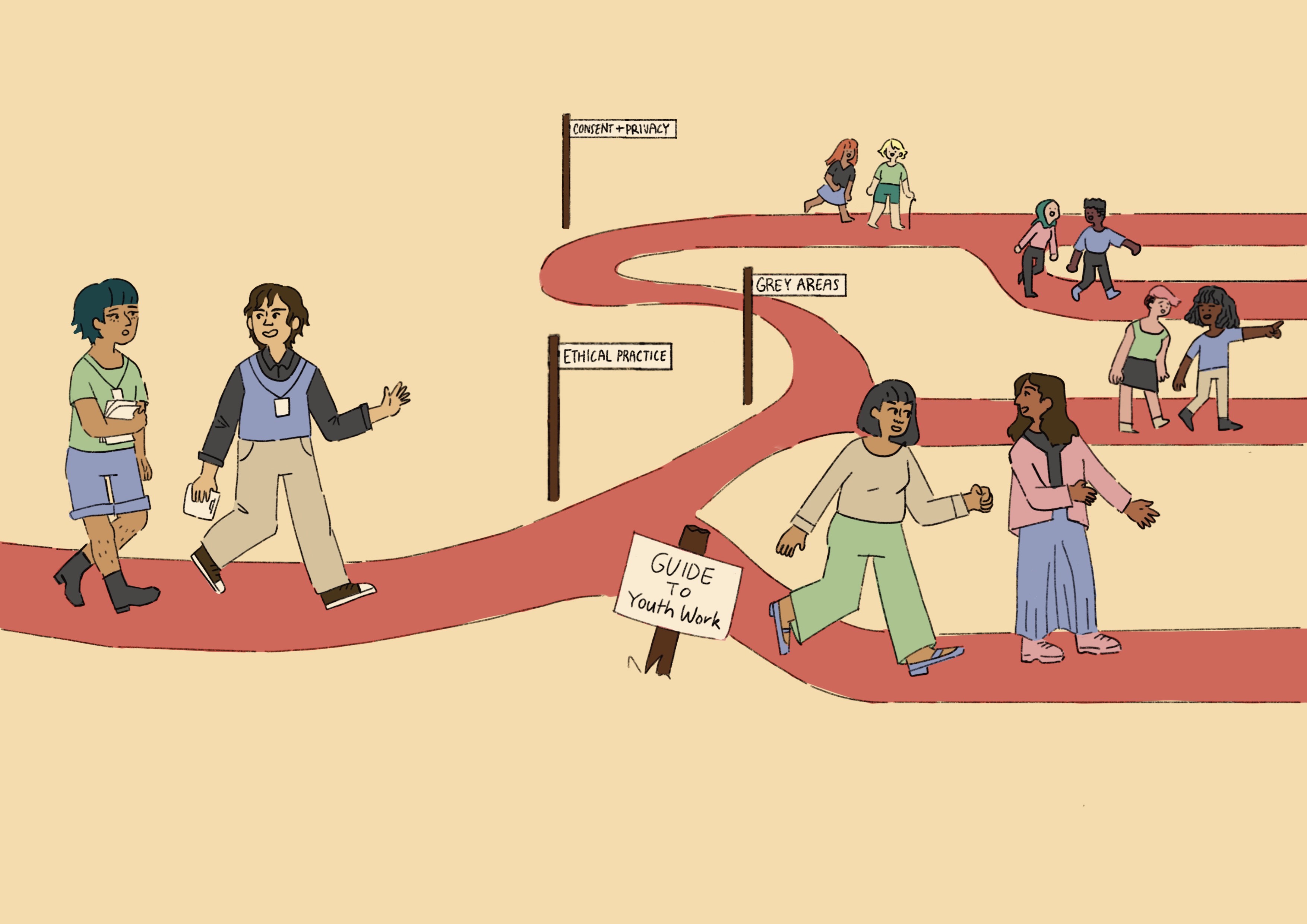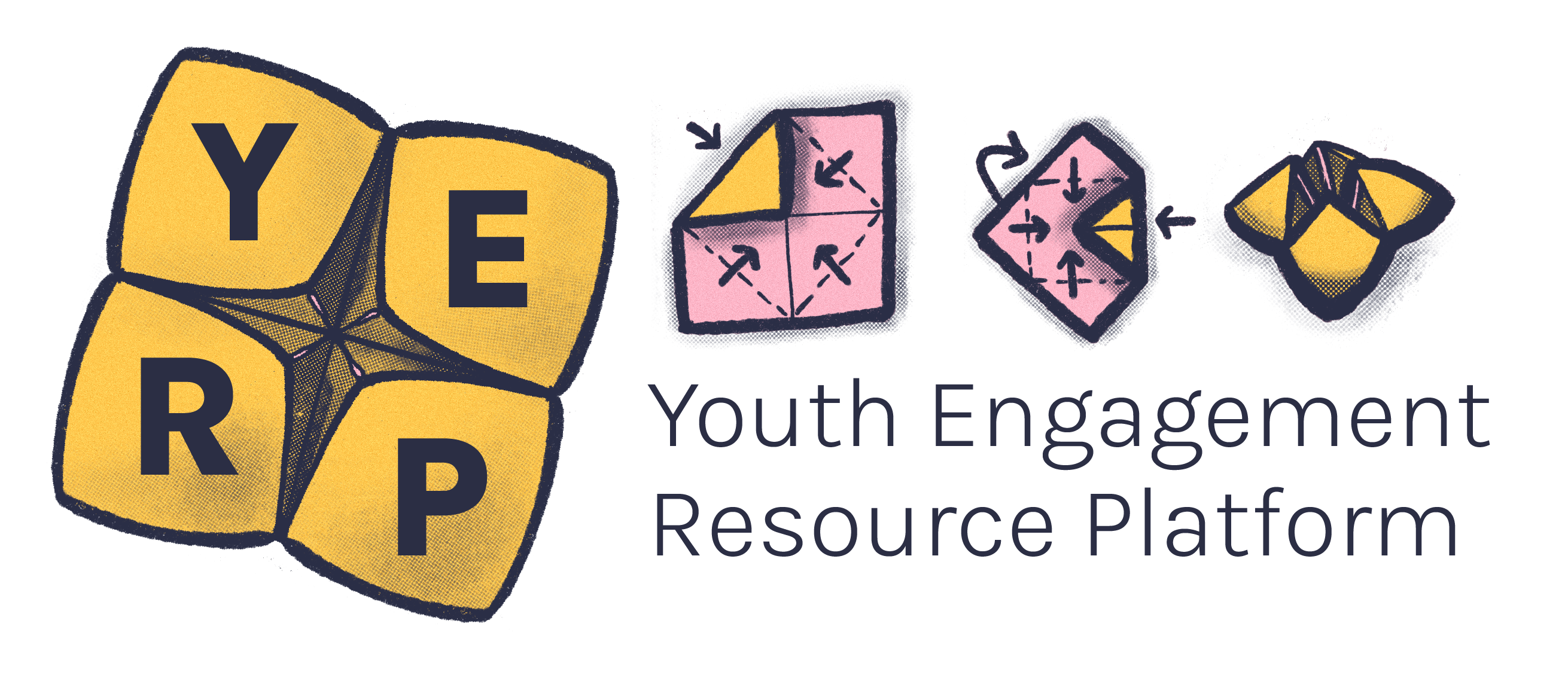1“Youth work is a practice that places young people and their interests first. Youth work is a relational practice, where the youth worker operates alongside the young person in their context. Youth work is an empowering practice that advocates for and facilitates a young person's independence, participation in society, connectedness and realisation of their rights.”
–Australian Youth Affairs Coalition
The sector had a longstanding desire for a nationally agreed definition of youth work that clearly acknowledges its value and uniqueness, setting it apart from other professions.1
The definition was formed through a series of consultations and processes, guided by a working group from AYAC’s Policy Advisory Council (PAC).1
“places young people and their interests first”
This is the most important part of understanding youth work – it places young people and their interests first, regardless of all the other competing interests. The young person with their consent, is the main focus of the youth worker1.
“a relational practice”
Relationships are the foundations for youth work. Establishing trusted and respectful relationships with the young people that youth workers engage with allows them to do the work they do so well. It places them as trusted people in the young person’s lives, which helps achieve positive outcomes for the young person1.
It’s also about improving and supporting the relationships they have with their families, friends, communities and broader society so they can thrive in their environments1.
“in their context”
As we know, context matters! By working alongside young people in their environments, youth workers gain an in-depth understanding of the context in which they live, work, play and exist1.
This knowledge means their work is informed by place-based knowledge, contextual understanding and they can move forward with the young person with empathy and understanding1.
“advocates for and facilitates”
Young people are often seen as passive recipients in their communities and when receiving services. Youth work challenges these ideas by working alongside the young person and embedding principles of youth participation in all aspects of their work1.
“an empowering practice... a young person’s independence... participation in society”
Youth workers aim to empower young people and their voices. They support them in their independence and contributions as active members in their communities1.
“connectedness”
Like relationships, connections also form the foundations for youth work and youth workers help to facilitate the connections between young people and the environments and people they engage with1.
Youth workers also focus on long term relationships for the young person, so they have strong and meaningful connections with their friends and family long after their work with the youth worker finishes1.
“realisation of their rights”
The United Nations set out the Convention on the Rights of the Child and whilst this has been ratified in Australia, we know that the rights of young people are often not protected. Youth workers work to protect these rights and advocate for them when young people are left out of conversations about issues that directly affect them1.
People walking on a path with signs about youth work that read 'consent and privacy, grey areas, ethical practice, guide to youth work'.

Youth work is not a professionalised sector and anyone working with young people can choose to use the term youth worker to describe their work, regardless of their qualifications.2
Professional youth work as a vocational practice is similar to work undertaken by other professionals and groups who work with young people. For example, teachers, therapists and counsellors.2
However, youth work is a distinct discipline, unique from other professions that involve working with young people.
Historically, the understanding of the impact of youth work and its benefits remains limited and the recognition of it as its own distinct profession has been difficult to attain.2
Youth work has many focus areas including:
- Mental health
- Education and training
- Employment
- Alcohol and other drugs (AOD)
- LGBTIQA+
- Housing and homelessness
- Domestic and family violence
- Youth justice
- Out-of-home care
- Disability
- Youth advocacy
- Life skills
- Health
- Sport and recreation
- Law
- Settlement
- Art, music and culture
Youth work also encompasses a range of generalist and specialist areas. Some generalist areas include active citizenship, social cohesion, crime prevention and labour market participation.2
You may also work with young people in these areas but not identify as a youth worker. It’s important to know that the standards of youth work apply to anyone working with young people.
The Code of Ethical Practice
A major step towards the professionalisation of youth work in Victoria was the development of the Code of Ethical Practice for the Victorian Youth Sector in 2007.
The Code of Ethical Practice is voluntary to adhere to but is relevant to all qualified youth workers and others working with young people. It provides a framework and set of principles and responsibilities for professional practice when working with young people.
It is as a frame of reference by which to develop ethical and safe practice.
Youth work is a broad sector workforce. Youth workers often have a mix of qualifications and professional and lived experiences.
Common qualifications include:
Bachelor of Youth Work
Certificate III/IV or Diploma in Youth Work or Community Services
Many professionals find themselves in the field of youth work after pursuing qualifications in social work, teaching and/or community development.
Others have no formal qualifications, but many years of field experience and lived experiences that enhance their work.
Speaker 1
We may not be doctors and we may not be surgeons but we are saving lives.
And we are playing that advocate role when other organisations or other people don't understand the life of a young person.
Speaker 2
Youth work is extremely unique.
If you work in disability, or drugs and alcohol, or homelessness, you are kind of focused on that specific field.
If you are a youth worker, you're covering every field.
Speaker 3
I have such a great responsibility to service these young people and to make sure that I'm doing everything in my power to help them in whatever way they need.
Speaker 4
It's opening all those sorts of possibilities for young people to see what there is for them.
Speaker 5
I love the young people I work with from disadvantaged backgrounds and it's a really great opportunity for the wider community to see that they're not gangsters, they're not thugs.
In fact, they're really valuable members of our community.
Speaker 6
Youth workers are the bridge for a lot of young people that have severe or some serious disadvantages in life.
Speaker 7
We won't give up on them.
We will be there to catch them and to lift up their voices.
Speaker 8
Early intervention is really important before the issues become really entrenched.
Speaker 9
The more they feel like they're alone or no one understands them, I think that's when it can lead to something a lot more severe.
Speaker 10
The more time and effort and work we put in to work with young people, the better off our community will be.
Speaker 11
And by having more funding in the area would mean that they can go,
"Hang on a minute, I am important. That's why they're investing in me."
Speaker 12
Being impacted by a youth worker taught me that you can really enjoy your job.
I don't think I would be a youth worker today if I wasn't supported by one when I was younger.
Speaker 7
Youth work matters because as a society we have a responsibility to make sure that young people everywhere are feeling supported to reach their fullest potential.
Speaker 6
We are the bridge between young people and the reality of life.
Speaker 2
It gives young people a safe place to go to get the real care that they need.
Speaker 5
Young people deserve to have a trusted adult they can connect with.
Speaker 3
The work that we are doing now with our youth is only gonna benefit our future as a society.
Speaker 13
Youth Work matters because young people matter.
Young people are the primary consideration for youth workers in a way that they may not be for other professions.
Youth workers recognise young people as experts in their own lives. They advocate for young people’s rights, support their voices, and provide strengths-based, holistic, place-based care so that young people can reach their full potential and thrive as active members of their community3.
Youth workers often have lived experiences that enhance their work and connections with young people, providing young people with empathetic and safe support.
Youth work practice also contributes to positive outcomes in a range of different ways, from small grassroots connections in programs, to federal government reforms.
Some other benefits of youth work include3:
- Being the glue that connects systems together. For example, school to work transitions, employment opportunities and more.
- Supporting young people to choose and stay on positive pathways.
- Helping families, communities and institutions stick by young people.
- Helping young people become involved in decision making that affects them at all levels of government.
Prevention and early intervention are a key aspect to youth work. They make sure change can be made before an issue becomes a crisis3.
Read more youth worker impact stories
Youth workers work in a range of different environments.
Many work in local governments and Non-Government Organisations (NGO)/ Not-for-Profits (NFP). They also work in educational settings, as well as community groups in areas such as health, sport and recreation.
While prevention and early intervention are a key focus for many youth workers, there are other youth workers who focus on immediate crisis response. This can be in relation to instances such as young people struggling with AOD and substance misuse, or those struggling with homelessness and mental health issues.
There are also youth workers who work in organisations that target specific cohorts such as First Nations young people or disabled young people – emphasising the support that youth workers can give to marginalised communities and those who face discrimination.
Remember, you may work in these spaces and not identify as a youth worker.
- Australian Youth Affairs Coalition. (2013). The AYAC Definition of Youth Work in Australia. https://static1.squarespace.com/static/60948b9e3847ee0caf0e2dd4/t/60ced174beb02125730e6fdf/1624166774392/National+Definition+of+Youth+Work+2013+-+AYAC.pdf
- Broadbent, R., Corney, T. (2008). Professional Youth Work in Victoria. Unisa Press
- Youth Work Coalition. (2021). Youth Work Matters: Why Youth Work is Important, Valuable and Unique. Youth Affairs Council Victoria. https://www.yacvic.org.au/assets/Documents/YWM-Articulation-Document-FINAL-web2.pdf





